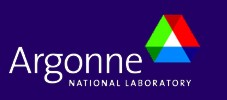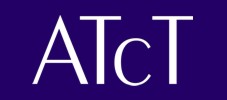Selected ATcT [1, 2] enthalpy of formation based on version 1.124 of the Thermochemical Network [3] This version of ATcT results was generated by additional expansion of version 1.122x [4] to include additional information relevant to the study of thermophysical and thermochemical properties of CH2 and CH3 using nonrigid rotor anharmonic oscillator (NRRAO) partition functions [5], the development and benchmarking of a state-of-the-art computational approach that aims to reproduce total atomization energies of small molecules within 10–15 cm-1 [6], as well as the study of the reversible reaction C2H3 + H2 ⇌ C2H4 + H ⇌ C2H5 [7]
|
Hydron | | Formula: H+ (aq) | | CAS RN: 12408-02-5 | | ATcT ID: 12408-02-5*800 | | SMILES: [H+] | | InChI: InChI=1S/H/q+1 | | InChIKey: ASSFXGJQJOXDAB-UHFFFAOYSA-N | | InChI: InChI=1S/p+1 | | InChIKey: GPRLSGONYQIRFK-UHFFFAOYSA-N | | Hills Formula: H1+ | 2D Image: | ![[H+]](../images/2790.png) | | Aliases: H+; Hydron; Hydrogen atom cation; Hydrogen atom ion (1+); Hydrogen cation; Hydrogen ion (1+); Atomic hydrogen cation; Atomic hydrogen ion (1+); Monohydrogen cation; Monohydrogen ion (1+); Proton; p+ | | Relative Molecular Mass: 1.007391 ± 0.000070 |
|
|
|
|
References
|
|
1
|
|
B. Ruscic, R. E. Pinzon, M. L. Morton, G. von Laszewski, S. Bittner, S. G. Nijsure, K. A. Amin, M. Minkoff, and A. F. Wagner,
Introduction to Active Thermochemical Tables: Several "Key" Enthalpies of Formation Revisited.
J. Phys. Chem. A 108, 9979-9997 (2004)
[DOI: 10.1021/jp047912y]
|
|
2
|
|
B. Ruscic, R. E. Pinzon, G. von Laszewski, D. Kodeboyina, A. Burcat, D. Leahy, D. Montoya, and A. F. Wagner,
Active Thermochemical Tables: Thermochemistry for the 21st Century.
J. Phys. Conf. Ser. 16, 561-570 (2005)
[DOI: 10.1088/1742-6596/16/1/078]
|
|
3
|
|
B. Ruscic and D. H. Bross,
Active Thermochemical Tables (ATcT) values based on ver. 1.124 of the Thermochemical Network, Argonne National Laboratory, Lemont, Illinois 2022; available at ATcT.anl.gov
[DOI: 10.17038/CSE/1885923]
|
|
4
|
|
Y. Ren, L. Zhou, A. Mellouki, V. Daële, M. Idir, S. S. Brown, B. Ruscic, Robert S. Paton, M. R. McGillen, and A. R. Ravishankara,
Reactions of NO3 with Aromatic Aldehydes: Gas-Phase Kinetics and Insights into the Mechanism of the Reaction.
Atmos. Chem. Phys. 21, 13537-13551 (2021)
[DOI: 10.5194/acp2021-228]
|
|
5
|
|
B. Ruscic and D. H. Bross,
Active Thermochemical Tables: The Thermophysical and Thermochemical Properties of Methyl, CH3, and Methylene, CH2, Corrected for Nonrigid Rotor and Anharmonic Oscillator Effects.
Mol. Phys. e1969046 (2021)
[DOI: 10.1080/00268976.2021.1969046]
|
|
6
|
|
J. H. Thorpe, J. L. Kilburn, D. Feller, P. B. Changala, D. H. Bross, B. Ruscic, and J. F. Stanton,
Elaborated Thermochemical Treatment of HF, CO, N2, and H2O: Insight into HEAT and Its Extensions
J. Chem. Phys. 155, 184109 (2021)
[DOI: 10.1063/5.0069322]
|
|
7
|
|
T. L. Nguyen, D. H. Bross, B. Ruscic, G. B. Ellison, and J. F. Stanton,
Mechanism, Thermochemistry, and Kinetics of the Reversible Reactions: C2H3 + H2 ⇌ C2H4 + H ⇌ C2H5.
Faraday Discuss. , (Advance Article) (2022)
[DOI: 10.1039/D1FD00124H]
|
|
8
|
|
B. Ruscic,
Uncertainty Quantification in Thermochemistry, Benchmarking Electronic Structure Computations, and Active Thermochemical Tables.
Int. J. Quantum Chem. 114, 1097-1101 (2014)
[DOI: 10.1002/qua.24605]
|
|
9
|
|
B. Ruscic and D. H. Bross,
Thermochemistry
Computer Aided Chem. Eng. 45, 3-114 (2019)
[DOI: 10.1016/B978-0-444-64087-1.00001-2]
|
|
|
|
Formula
|
|
The aggregate state is given in parentheses following the formula, such as: g - gas-phase, cr - crystal, l - liquid, etc.
|
|
|
Uncertainties
|
The listed uncertainties correspond to estimated 95% confidence limits, as customary in thermochemistry (see, for example, Ruscic [8,9]).
Note that an uncertainty of ± 0.000 kJ/mol indicates that the estimated uncertainty is < ± 0.0005 kJ/mol.
|
|
|
Website Functionality Credits
|
The reorganization of the website was developed and implemented by David H. Bross (ANL).
The find function is based on the complete Species Dictionary entries for the appropriate version of the ATcT TN.
The molecule images are rendered by Indigo-depict.
The XYZ renderings are based on Jmol: an open-source Java viewer for chemical structures in 3D. http://www.jmol.org/.
|
|
|
Acknowledgement
|
|
This work was supported by the U.S. Department of Energy, Office of Science, Office of Basic Energy Sciences, Division of Chemical Sciences, Geosciences and Biosciences under Contract No. DE-AC02-06CH11357.
|
|








![[H+]](../images/2790.png)